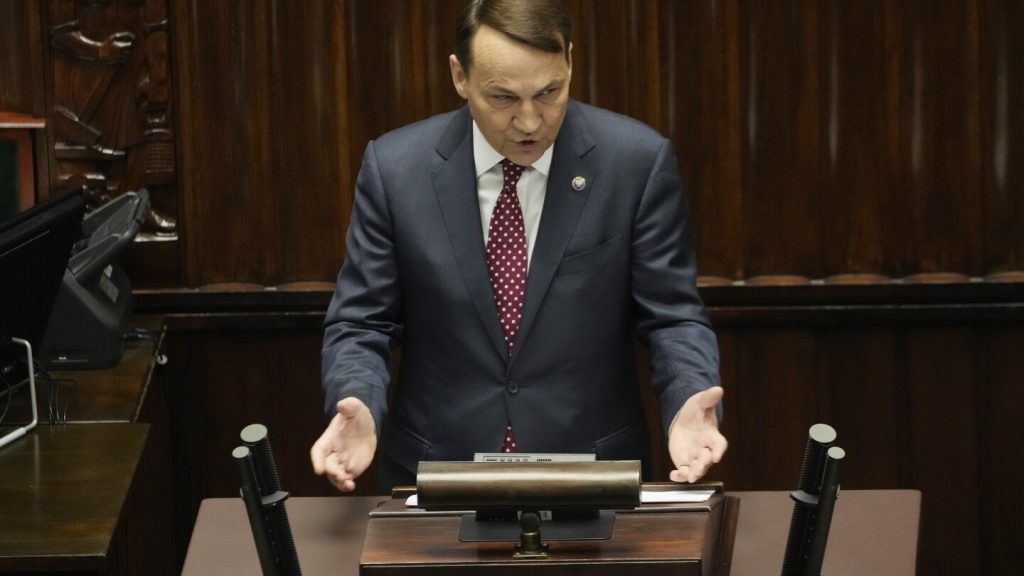Poland’s foreign minister, Radek Sikorski, urged NATO to increase its defense preparedness and emphasized his government’s desire to play a central role in decision-making within the European Union. Amid the ongoing war in Ukraine, Sikorski highlighted the importance of Poland returning to being a reliable international partner and stressed the need for NATO to boost its defenses to deter any potential Russian aggression. While the previous conservative government clashed with the EU, Sikorski aims to reassert Poland’s influence in Europe and enhance its cooperation within the EU.
Sikorski’s vision for Poland aligns with French President Emmanuel Macron’s goal of a more assertive Europe, particularly in supporting Ukraine and countering Russian aggression. Sikorski emphasized that Russia’s military and economic capabilities are inferior to those of the West, making it clear that any attack by Russia on NATO would result in defeat for Moscow. The speech also denounced Russia’s hybrid war against Poland, including disinformation campaigns, and rejected false claims about Poland’s intentions regarding the city of Lviv in Ukraine.
The new direction of Prime Minister Donald Tusk’s pro-European government, which replaced the previous conservative coalition, prioritizes restoring democratic norms and strengthening Poland’s international standing. The government’s commitment to upholding democratic values was underscored in Sikorski’s speech, which aimed to counter Russian propaganda and emphasize Poland’s support for Ukraine. President Andrzej Duda, aligned with the Law and Justice party, also attended the speech, signaling a shift in Poland’s approach to defining its international policies.
The government’s determination to define Poland’s international stance was evident in criticisms leveled against the previous government’s policies, including former Prime Minister Mateusz Morawiecki’s interactions with pro-Putin nationalists. President Duda’s recent actions, such as meeting with Donald Trump and expressing readiness to host nuclear weapons, without consulting the government, were condemned by Sikorski. The current administration is striving to mend relations with European allies and enhance cooperation within NATO, despite differing views within the Polish political landscape.
Sikorski emphasized the importance of fostering friendly relations with Germany, highlighting the country as Poland’s democratic neighbor and key ally within NATO. The speech acknowledged the historical complexities between Poland and Germany but emphasized the need for collaboration and partnership moving forward. The government’s efforts to reconcile with Germany and other European partners reflect a broader strategy of reinforcing Poland’s role within the EU and NATO, while also countering external threats and disinformation campaigns.
Overall, Sikorski’s speech outlined a strategic vision for Poland as a central player in European decision-making, advocating for stronger defense preparedness within NATO and a more assertive European stance against Russian aggression. The government’s commitment to democratic values, cooperation with European partners, and support for Ukraine signal a shift in Poland’s foreign policy objectives under the new administration. By emphasizing Poland’s role as a key ally in NATO and the EU, the government aims to strengthen alliances, counter disinformation, and bolster the country’s standing on the international stage.


